
Where to do a PhD in Cyber Conflict in Europe?
Are you interested in pursuing a PhD in the field of cyber conflict or cyber security? This page provides a non-comprehensive list of relevant PhD programs and available supervisors in Europe, followed by their respective biographies (in alphabetical order).
Would you like to add your PhD program to the list? Please fill out the following survey.
Last updated: February 2024
Overview
| University | Department / Program | Supervisor | Areas of interest | Part-time option | Remote option |
|---|---|---|---|---|---|
| Bath University | EPSRC Centre for Doctoral Training in Cyber Security | Andre Barrinha | Cyber-diplomacy, cybersecurity, international order, technology and security, European security, European foreign policy and International Relations Theory and Security | n/a | n/a |
| ETH Zurich | Center for Security Studies | Andreas Wenger | Cyber security, Technology, Security Studies | No | No |
| Hertie School | n/a | Anita Gohdes | Digital repression, digital authoritarianism, Hybrid warfare, Propaganda, Information Operations | No | No |
| King's College London | Department of War Studies | Tim Stevens | Politics of cybersecurity; cyberwarfare; cyber conflict; political economy of cybersecurity | Yes | No |
| Leiden University | Institute for Security and Global Affairs | Bibi van den Berg | Cybersecurity governance, the intersection between safety and security, techno-regulation (code is law) | Yes | No |
| Leiden University | Institute for Security and Global Affairs | Dennis Broeders | Cybersecurity, cybersecurity governance, emerging technologies, global security, security and threat | Yes | No |
| Loughborough University | Computer Science | Tim Watson | Cyber resilience, critical infrastructure, adversarial AI, defensive deception | Yes | Yes |
| Masaryk University | Institute of law and technology, Faculty of law | Stupka Vaclav | Legal, policy and compliance issues related to cybercrime, cybersecurity and cyber defence | Yes | No |
| Université de Bordeaux | Faculté de droit et de science politique | Sébastien-Yves Laurent | Cyber coercion, cyber conflict. Cyber governance. Epistemology & methodology | Yes | Yes |
| Nottingham University | Politics and International Relations | Joe Burton | Cyber war, cyber crime, emerging technologies, cyber Diplomacy | Yes | No |
| University of Oxford | Oxford Internet Institute | Keegan McBride | Digital State, Digital Government, Cyber Security, Interoperability, Cyber Weapons, OSINT | Yes | No |
| University of Oxford | Blavatnik School of Government | Roxana Radu | Tech & public policy, Internet governance, cybersecurity governance | Yes | No |
| Università di Pisa | Informatica | Fabrizio Baiardi | Cybersecurity, cyberwar | Yes | Yes |
| Portsmouth University | Strategy, Enterprise, Innovation (SEI) | Clare Stevens | Critical cyber security; science and technology studies; cyber conflict | Yes | Yes |
| Swansea University | Criminology | Kerime Toprak | Cyber crimes | Yes | Yes |
| Westphalian University | Computer Science, Cyber Security | Christian Dietrich | Threat Intelligence, Attribution, Malware Analysis | No | No |
Supervisors
| University | Department / Program | Supervisor | Areas of interest | Part-time option | Remote option |
|---|---|---|---|---|---|
| University of Bath | EPSRC Centre for Doctoral Training in Cyber Security | Andre Barrinha | Cyber-diplomacy, cybersecurity, international order, technology and security, European security, European foreign policy and International Relations Theory and Security | n/a | n/a |
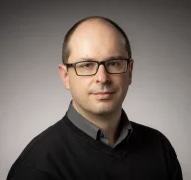
André Barrinha is a Senior Lecturer (Associate Professor) in International Relations. His main research interests include cyber-diplomacy, cybersecurity, international order, technology and security, European security, European foreign policy and International Relations Theory and Security.
Dr. Barrinha is currently working on the role of new technologies in International Relations, with a special focus on cybersecurity. He was awarded, in 2019, a Leverhulme Trust Research Fellowship to study the emergence of cyber-diplomacy in international relations.
His work has been published in journals such as Contemporary Security Policy, International Affairs, European Security, Mediterranean Politics, Third World Quarterly, Journal of Common Market Studies and Journal of European Integration. He co-authored International Relations Now and Then (Routledge, 2nd ed.). In 2019, he was awarded the Best Article in Global Affairs Award for a co-authored piece with Thomas Renard on cyber diplomacy and the English School.
He is the current chair of the ISA section Science, Technology and Art in International Relations. He was one of the founders and conveners of the British International Studies Association European Security Working Group (2016-18), and of the UACES RN INTERSECT: Technology-Security-Society interplays in Europe (2017-20).
Dr Barrinha joined PoLIS in September 2017, having previously worked at Canterbury Christ Church University, University of Coimbra, and the University of Kent, where he concluded his PhD in International Relations in 2010.
| University | Department / Program | Supervisor | Areas of interest | Part-time option | Remote option |
|---|---|---|---|---|---|
| ETH Zurich | Center for Security Studies | Andreas Wenger | Cyber security, Technology, Security Studies | No | No |
 Andreas Wenger is professor of International and Swiss Security Policy at ETH Zurich. He studied History, Political Science and German Literature at the University of Zurich. He holds a Doctorate from the University of Zurich and was a visiting fellow at the Woodrow Wilson School of Public and International Affairs and the Center of International Studies, Princeton University. During that period, he wrote his doctoral dissertation analyzing the role of nuclear weapons in the Cold War international system. The focus of his main research interests lies on security and strategic studies and the history of international relations. Within the MA program in Comparative and International Studies (MACIS), he teaches seminars on political violence and security politics.
Andreas Wenger is professor of International and Swiss Security Policy at ETH Zurich. He studied History, Political Science and German Literature at the University of Zurich. He holds a Doctorate from the University of Zurich and was a visiting fellow at the Woodrow Wilson School of Public and International Affairs and the Center of International Studies, Princeton University. During that period, he wrote his doctoral dissertation analyzing the role of nuclear weapons in the Cold War international system. The focus of his main research interests lies on security and strategic studies and the history of international relations. Within the MA program in Comparative and International Studies (MACIS), he teaches seminars on political violence and security politics.
Andreas Wenger has been the Director of the Center for Security Studies (CSS) at ETH Zurich since 2002. The CSS is a center of excellence for national and international security policy. Since its foundation in 1986, the CSS has fulfilled a national role at the intersection of academia and public policy and a key bridging function vis-à-vis society and politics. The CSS maintains a strong partnership with the Federal Department of Defense, Civil Protection and Sport (DDPS) and the Federal Department of Foreign Affairs (FDFA). These partnerships cover research, education, and policy engagement.
| University | Department / Program | Supervisor | Areas of interest | Part-time option | Remote option |
|---|---|---|---|---|---|
| Hertie School | n/a | Anita Gohdes | Digital repression, digital authoritarianism, Hybrid warfare, Propaganda, Information Operations | No | No |
 Anita Gohdes is Professor of International and Cyber Security at the Hertie School. Her research focuses on contentious politics in the cyber realm, with a current emphasis on large-scale quantitative analyses of state behaviour. Previously, she was Assistant Professor of International Relations at the University of Zurich, and postdoctoral research fellow at Harvard Kennedy School’s Belfer Center International Security Program. Since 2009, she has worked for the California-based non-profit organisation Human Rights Data Analysis Group. She currently advises the German Federal Foreign Office, and has consulted for the World Bank and the United Nations on security and state fragility. Her doctoral dissertation (University of Mannheim) was awarded the German Dissertation Award in the Social Sciences by the Körber Foundation, and the Walter Isard Dissertation Award by the Peace Science Society.
Anita Gohdes is Professor of International and Cyber Security at the Hertie School. Her research focuses on contentious politics in the cyber realm, with a current emphasis on large-scale quantitative analyses of state behaviour. Previously, she was Assistant Professor of International Relations at the University of Zurich, and postdoctoral research fellow at Harvard Kennedy School’s Belfer Center International Security Program. Since 2009, she has worked for the California-based non-profit organisation Human Rights Data Analysis Group. She currently advises the German Federal Foreign Office, and has consulted for the World Bank and the United Nations on security and state fragility. Her doctoral dissertation (University of Mannheim) was awarded the German Dissertation Award in the Social Sciences by the Körber Foundation, and the Walter Isard Dissertation Award by the Peace Science Society.
Anita Gohdes is part of the Centre for International Security’s research team.
| University | Department / Program | Supervisor | Areas of interest | Part-time option | Remote option |
|---|---|---|---|---|---|
| King's College London | Department of War Studies | Tim Stevens | Politics of cybersecurity; cyberwarfare; cyber conflict; political economy of cybersecurity | Yes | No |
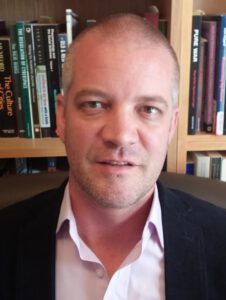 Dr Stevens is Senior Lecturer in Global Security and head of the King’s Cyber Security Research Group. His research looks at the intersection of technology, politics and global security practices, with specific interests in the politics and governance of cybersecurity. He has also written on time and temporality in International Relations, including in a monograph, Cyber Security and the Politics of Time (Cambridge University Press, 2016).
Dr Stevens is Senior Lecturer in Global Security and head of the King’s Cyber Security Research Group. His research looks at the intersection of technology, politics and global security practices, with specific interests in the politics and governance of cybersecurity. He has also written on time and temporality in International Relations, including in a monograph, Cyber Security and the Politics of Time (Cambridge University Press, 2016).
He joined the Department of War Studies as a lecturer in 2016, having previously taught at King’s and Royal Holloway University of London.
Dr Stevens has a BA (Hons) in Archaeology from University College London, and an MA, MRes and PhD in War Studies from King’s College London. He is an elected Fellow of the Royal Geographical Society. He is also a Fellow of the Higher Education Academy and Senior Fellow and Associate Researcher at the Conservatoire National des Arts et Métiers (Cnam), Paris. He is the inaugural International Fellow at the Research Institute for Sociotechnical Cyber Security (RISCS).
Tim Stevens’ research is situated at the intersection of technology, politics and global security. He is particularly interested in information technologies and their roles in shaping and enabling global security practices. He has written extensively on the politics and governance of cybersecurity, especially in its strategic and international dimensions.
His current research projects explore: the role of offensive cyber operations in UK strategy; the nature and character of fragmentation in global cybersecurity governance; and topologies of cyberwarfare.
| University | Department / Program | Supervisor | Areas of interest | Part-time option | Remote option |
|---|---|---|---|---|---|
| Leiden University | Institute for Security and Global Affairs | Bibi van den Berg | Cybersecurity governance, the intersection between safety and security, techno-regulation (code is law) | Yes | No |
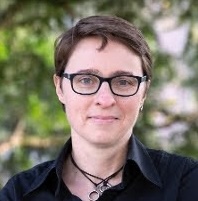 Prof.dr. Bibi van den Berg (1975) is full professor of Cybersecurity Governance at Leiden University, and the head of the Cybersecurity Governance research group at the Institute of Security and Global Affairs of this university. Van den Berg has an MA and PhD in philosophy, both from Erasmus University in Rotterdam. Her research and teaching focus on several themes: (1) cybersecurity governance, (2) governance of security and safety and (3) regulating human behavior through the use of technologies (techno-regulation and nudging.
Prof.dr. Bibi van den Berg (1975) is full professor of Cybersecurity Governance at Leiden University, and the head of the Cybersecurity Governance research group at the Institute of Security and Global Affairs of this university. Van den Berg has an MA and PhD in philosophy, both from Erasmus University in Rotterdam. Her research and teaching focus on several themes: (1) cybersecurity governance, (2) governance of security and safety and (3) regulating human behavior through the use of technologies (techno-regulation and nudging.
Van den Berg is the chair of ACCSS, the Academic Cyber Security Society in the Netherlands. She is also a member of the Dutch Cyber Security Council, a Council that advises the Dutch cabinet on how to improve cybersecurity in the Netherlands. She is also a member of the ICT Advisory Board of the Central Bureau of Statistics in the Netherlands, and chair of the Advisory Board of ID&D.
| University | Department / Program | Supervisor | Areas of interest | Part-time option | Remote option |
|---|---|---|---|---|---|
| Leiden University | Institute for Security and Global Affairs | Dennis Broeders | Cybersecurity, cybersecurity governance, emerging technologies, global security, security and threat | Yes | No |
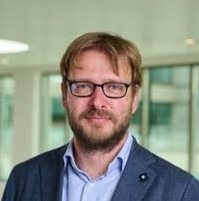 Dennis Broeders is Full Professor of Global Security and Technology, Senior Fellow of The Hague Program on International Cyber Security at Institute of Security and Global Affairs of Leiden University and Project Coordinator of EU Cyber Direct. His research and teaching broadly focuses on the interaction between international security, technology and policy, with specific areas of interest in global security, international cyber security governance, and emerging technologies. He teaches in the Bachelor program Security Studies and in the master program at the Cyber security Academy.
Dennis Broeders is Full Professor of Global Security and Technology, Senior Fellow of The Hague Program on International Cyber Security at Institute of Security and Global Affairs of Leiden University and Project Coordinator of EU Cyber Direct. His research and teaching broadly focuses on the interaction between international security, technology and policy, with specific areas of interest in global security, international cyber security governance, and emerging technologies. He teaches in the Bachelor program Security Studies and in the master program at the Cyber security Academy.
| University | Department / Program | Supervisor | Areas of interest | Part-time option | Remote option |
|---|---|---|---|---|---|
| Loughborough University | Computer Science | Tim Watson | Cyber resilience, critical infrastructure, adversarial AI, defensive deception | Yes | Yes |
 Tim Watson is a Professor at Loughborough University. He is also the Programme Director for Alan Turing Institute’s defence and security programme. He is an adviser to various parts of the UK government and to several professional and standards bodies.
Tim Watson is a Professor at Loughborough University. He is also the Programme Director for Alan Turing Institute’s defence and security programme. He is an adviser to various parts of the UK government and to several professional and standards bodies.
Tim’s research includes EU-funded projects on combating cyber crime, UK MoD research into automated defence, insider threat and secure remote working, and UKRI-funded research, focusing on the protection of critical national infrastructure against cyber attack. In PETRAS he is the Chair of the Research Excellence Board.
| University | Department / Program | Supervisor | Areas of interest | Part-time option | Remote option |
|---|---|---|---|---|---|
| Masaryk University | Institute of law and technology, Faculty of law | Stupka Vaclav | Legal, policy and compliance issues related to cybercrime, cybersecurity and cyber defence | Yes | No |
 Stupka Vaclav is a deputy director of the cooperative research institute focused on cybersecurity, that was established by Masaryk University, Czech Technical University and Brno University of Technology. Focus on research coordination, coordination of services provided by the CSH within the European Digital Innovation Hub consortium and management of certification activities of the CSH.
Stupka Vaclav is a deputy director of the cooperative research institute focused on cybersecurity, that was established by Masaryk University, Czech Technical University and Brno University of Technology. Focus on research coordination, coordination of services provided by the CSH within the European Digital Innovation Hub consortium and management of certification activities of the CSH.
| University | Department / Program | Supervisor | Areas of interest | Part-time option | Remote option |
|---|---|---|---|---|---|
| Université de Bordeaux | Faculté de droit et de science politique | Sébastien-Yves Laurent | Cyber coercion, cyber conflict. Cyber governance. Epistemology & methodology | Yes | Yes |
 Sébastien-Yves Laurent is a Professor at the University of Bordeaux (UB, Faculty of Law and Political Science), Vice-President of the UB and lecturer at Sciences Po Paris.
Sébastien-Yves Laurent is a Professor at the University of Bordeaux (UB, Faculty of Law and Political Science), Vice-President of the UB and lecturer at Sciences Po Paris.
In the context of state analysis, Sébastien-Yves’ three main research interests are the role of social sciences for analysis and anticipation, the dynamics of armed conflict, and issues of governance and conflict in cyberspace
In collaboration with Jean-Pierre Bat, François David, Philippe Hayez and Floran Vadillo, he directs the seminar “METIS, Intelligence and democratic societies”.
| University | Department / Program | Supervisor | Areas of interest | Part-time option | Remote option |
|---|---|---|---|---|---|
| University of Nottingham | Politics and International Relations | Joe Burton | Cyber war, cyber crime, emerging technologies, cyber Diplomacy | Yes | No |
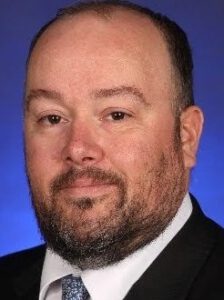 Joe Burton is a Professor of International Security in the Department of Politics, Philosophy and Religion (PPR).
Joe Burton is a Professor of International Security in the Department of Politics, Philosophy and Religion (PPR).
He joined Lancaster University in July 2023 as part of the University’s Security and Protection Science initiative. Prior to that he held permanent positions at the University of Nottingham and the University of St Andrews and was a Marie Curie (MSCA-IF) fellow at Université libre de Bruxelles (ULB), working on the two-year European Commission-funded project Strategic Cultures of Cyber Warfare (CYBERCULT). Previously he was Senior Lecturer in the New Zealand Institute for Security and Crime Science (NZISCS) at the University of Waikato.
His expertise is in the area of Cyber Conflict and Emerging Technologies. He teaches courses on Cyber Security, Artificial Intelligence, Strategic Studies and International Security and works on an interdisciplinary research agenda on cyber security, terrorism, organised crime, maritime security, norm diffusion, conflict prevention, regional collective security and non-proliferation.
He has worked at the highest levels of professional politics and policy, as a ministerial advisor in New Zealand and the UK, national campaign coordinator, legislative assistant, researcher, and political organiser. He holds a Doctorate in International Relations and a Master of International Studies degree from the University of Otago and an undergraduate degree in International Relations from the University of Wales, Aberystwyth.
He is recipient of the US Department of State (DoS) SUSI Fellowship (New York, Washington D.C.), the Taiwan Fellowship (Ministry of Foreign Affairs, Taipei), and has been visiting researcher and lecturer at the NATO Cooperative Cyber Defence Centre of Excellence (CCDCOE) in Tallinn, Estonia.
He has participated in policy development processes in New Zealand (Ministry of Foreign Affairs, Ministry of Defence, Intelligence Community) and in the ASEAN Region (ASEAN Regional Forum, ADMM+ Experts Working Group on Cyber Security, bi/trilateral track 1.5 and track 2 dialogues, e.g. Council for Security and Cooperation in the Asia Pacific – CSCAP).
His research has received funding from the US Department of State, the Taiwan Ministry of Foreign Affairs (MOFA), the NATO Science for Peace and Security Programme (NATO SPS), NATO CCDCOE, and from the European Commission (Marie Curie program).
| University | Department / Program | Supervisor | Areas of interest | Part-time option | Remote option |
|---|---|---|---|---|---|
| University of Oxford | Oxford Internet Institute | Keegan McBride | Digital State, Digital Government, Cyber Security, Interoperability, Cyber Weapons, OSINT | Yes | No |
 Dr. Keegan McBride is an expert on topics such as digital government, digital innovation, the use of AI in the public sector, digital well-being and happiness, and government interoperability and data exchange. He is an active member of the scholarly community, participating in several high-level digital government focused conferences and publishing in leading peer-reviewed digital government focused journals. In his research he aims to develop an understanding about the future trajectory of the state in the digital age by exploring the complex and co-evolutionary relationships between technology, society, and the state.
Dr. Keegan McBride is an expert on topics such as digital government, digital innovation, the use of AI in the public sector, digital well-being and happiness, and government interoperability and data exchange. He is an active member of the scholarly community, participating in several high-level digital government focused conferences and publishing in leading peer-reviewed digital government focused journals. In his research he aims to develop an understanding about the future trajectory of the state in the digital age by exploring the complex and co-evolutionary relationships between technology, society, and the state.
Outside of these academic interests, Keegan is actively working with NGOs, particularly those that focus on reimagining a better, open, human-centric, and equitable digital future, he can additionally be found consulting and working with governments and private sector organizations on the topic of governmental digitalization. Keegan received an MSc in e-Governance Technologies and Services and completed his doctoral studies in public administration –both at the Tallinn University of Technology in Tallinn, Estonia.
| University | Department / Program | Supervisor | Areas of interest | Part-time option | Remote option |
|---|---|---|---|---|---|
| University of Oxford | Blavatnik School of Government | Roxana Radu | Tech & public policy, Internet governance, cybersecurity governance | Yes | No |
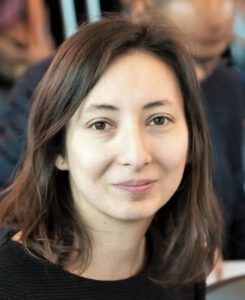 Roxana Radu is an Associate Professor of Digital Technologies and Public Policy and a Hugh Price Fellow at Jesus College. Her research focuses on the governance of technology and internet-related policymaking. She is the author of the monograph ‘Negotiating Internet Governance’ (Oxford University Press, 2019), inspired by her work with the diplomatic community in Geneva, Switzerland. She often advises governments and international organisations on digital governance issues and currently serves on the Advisory Group of the EU Cybersecurity Agency. Since January 2023, she is the elected Chair of the Global Internet Governance Academic Network (GigaNet). Roxana holds a PhD (summa cum laude) in International Relations from the Geneva Graduate Institute and an MA (honours) in Political Science from the Central European University.
Roxana Radu is an Associate Professor of Digital Technologies and Public Policy and a Hugh Price Fellow at Jesus College. Her research focuses on the governance of technology and internet-related policymaking. She is the author of the monograph ‘Negotiating Internet Governance’ (Oxford University Press, 2019), inspired by her work with the diplomatic community in Geneva, Switzerland. She often advises governments and international organisations on digital governance issues and currently serves on the Advisory Group of the EU Cybersecurity Agency. Since January 2023, she is the elected Chair of the Global Internet Governance Academic Network (GigaNet). Roxana holds a PhD (summa cum laude) in International Relations from the Geneva Graduate Institute and an MA (honours) in Political Science from the Central European University.
| University | Department / Program | Supervisor | Areas of interest | Part-time option | Remote option |
|---|---|---|---|---|---|
| Università di Pisa | Informatica | Fabrizio Baiardi | Cybersecurity, cyberwar | Yes | Yes |
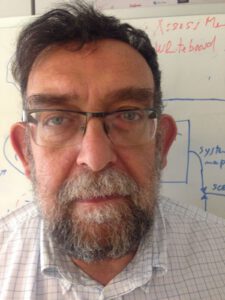 Fabrizio Baiardi is a full professor in computer science at Università di Pisa. He is currently coordinating a research group on ICT risk assessment and management. He has managed or has been involved in several research projects sponsored by private and public institutions.
Fabrizio Baiardi is a full professor in computer science at Università di Pisa. He is currently coordinating a research group on ICT risk assessment and management. He has managed or has been involved in several research projects sponsored by private and public institutions.
The current focus of his research is on automated methods and tools to assess and improve the robustness and the resilience of ICT system with respect to malicious attackers. In particular, he is currently investigating the techniques, tactics and procedure an attacker may exploit and the adoption of AI techniques to emulate the behavior of an attacker. The emulation of the adversary is a fundamental step to discover how vulnerabilities and the weakness of an ICT infrastructure will be exploited and devise an effectiveness remediation. In this way, adversary emulation becomes a design tool that can be used to increase the robustness and the resilience of an ICT infrastructure. His research has also considered the definition of intrusion detection systems focusing on the discovery of anomalous behaviour of some users. This has lead to a US patent.
He is the cofounder and scientific advisor of a start-up offering service and platforms in the cybersecurity field.
| University | Department / Program | Supervisor | Areas of interest | Part-time option | Remote option |
|---|---|---|---|---|---|
| University of Portsmouth | Strategy, Enterprise, Innovation (SEI) | Clare Stevens | Critical cyber security; science and technology studies; cyber conflict | Yes | Yes |
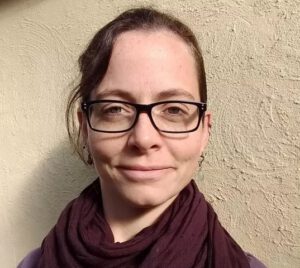 Clare Stevens is a Teaching Fellow in International Security based at RAF College Cranwell, working as part of the Portsmouth Military Education team (PME).
Clare Stevens is a Teaching Fellow in International Security based at RAF College Cranwell, working as part of the Portsmouth Military Education team (PME).
Her PhD thesis took an in-depth critical look at cybersecurity politics in the United States. Despite its prominence in security discourses and policies in the United States, what counts as ‘cybersecurity’ and how it is to be practised by state actors is still a matter of ongoing contention. By deploying the analytical framework of ‘boundary work’ from Science and Technology Studies (STS), she argued that what cybersecurity ‘is,’ and how its boundaries are drawn, are not overdetermined by strategic or technological imperatives, so much as they reflect the efforts of different entities to defend and extend their own organisational and symbolic boundaries. As her thesis found, this approach opened up critical questions over the extent to which security imaginaries and conceptions of US national identity work as important codes of intelligibility in (and transformed through) cybersecurity politics over time, finding that technologies, consequential categories, institutional responsibilities, political authority, and national identity are also constituted and challenged in and through these debates.
As well as exploring cybersecurity politics in other contexts and settings, her current research is also looking at the role that time and temporality plays in government secrecy and is also examining what emerging conceptions of ‘cyber power,’ and its strategic implications, mean for the UK.
She is interested in research that takes a critical and reflexive approach to matters of security, and that questions commonplace assumptions about cybersecurity at the international and national security levels. Her research is interdiscplinary in nature, sitting at the intersections between critical security studies, International Relations, STS, sociology and politics.
| University | Department / Program | Supervisor | Areas of interest | Part-time option | Remote option |
|---|---|---|---|---|---|
| Swansea University | Criminology | Kerime Toprak | Cyber crimes | Yes | Yes |
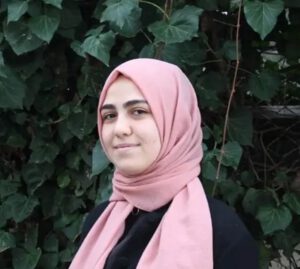 Kerime’s research focuses on organized crimes, financial crimes, and criminal use of cryptocurrencies. She is especially interested in how revenues from crypto-generated crimes are laundered. She is a member of the CYTREC (Cyber Threats Research Centre) in the university. She is also a student representative of the criminology department.
Kerime’s research focuses on organized crimes, financial crimes, and criminal use of cryptocurrencies. She is especially interested in how revenues from crypto-generated crimes are laundered. She is a member of the CYTREC (Cyber Threats Research Centre) in the university. She is also a student representative of the criminology department.
Kerime started her career in a law office focusing on criminal law and worked as attorney at law in Turkey. She has studied illicit trafficking of cultural property in her master thesis. Kerime works closely with NGO networks that specialize in international law and she gave lectures on International Law in the ICIL (Istanbul Centre of International Law). She is on the supervisory board of this organization.
| University | Department / Program | Supervisor | Areas of interest | Part-time option | Remote option |
|---|---|---|---|---|---|
| Westphalian University | Computer Science, Cyber Security | Christian Dietrich | Threat Intelligence, Attribution, Malware Analysis | No | No |
 In 2017, Chris joined the Westphalian University as a professor of computer and network security. He is interested in systems security, and in particular malware analysis techniques in the context of targeted attacks, as well as the broader field of threat intelligence analysis.
In 2017, Chris joined the Westphalian University as a professor of computer and network security. He is interested in systems security, and in particular malware analysis techniques in the context of targeted attacks, as well as the broader field of threat intelligence analysis.
With years of experience as a technical threat intelligence analyst with CrowdStrike, Chris has dealt with advanced nation-state targeted attacks.
Together with Lars Wallenborn, he initiated and contributes to the Armchair Investigators podcast dealing with malware, cybercrime and cyber espionage (in German).
